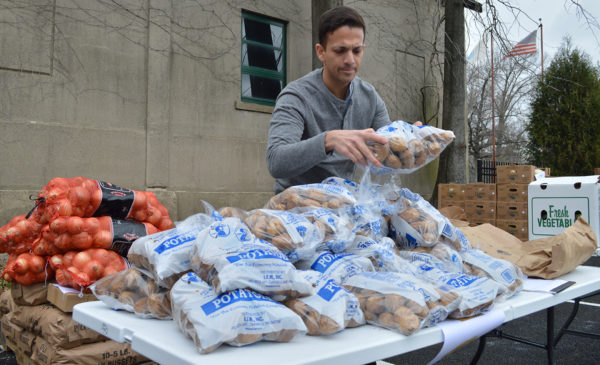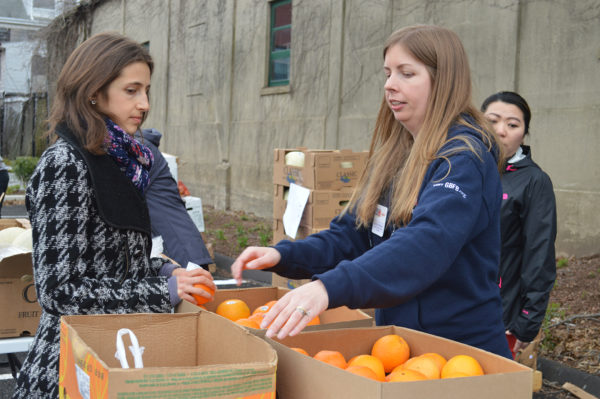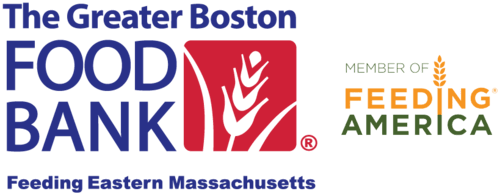New York Times Article Response: “Food Banks Take on a Contributor to Diabetes”
As The Greater Boston Food Bank (GBFB) continues working towards its goal of distributing 57 million pounds of food this year, it’s crucial to note that the quality of what is being distributed is becoming as important as the quantity of food being distributed to our friends, family, and neighbors. Two Registered Dietitians on staff ensure that 25% of that food distribution is fresh produce and 50% is perishable product.

Food insecurity, described as the state of being without reliable access to a sufficient quantity of nutritious food, has been linked to poor diet, lower overall health, depression, and a higher risk of developing chronic diseases like diabetes and high blood pressure.
According to a recent New York Times article, the examination of food insecurity, nutrition, and subsequent health outcomes is a new shift in food banks across the United States, and GBFB is no stranger to this new movement. The June 17 article showcases efforts by the Houston Food Bank to involve their clients in an experimental program that looks to combat diabetes with foods available at their food bank.
The author of this article, Catherine Saint Louis, points out that “many who depend on food pantries are not underfed, but are obese and diabetic,” a statistic backed up by Feeding America. In 2014, the Feeding America ‘Hunger in America’ study revealed that 33% of households utilizing food pantries had a member with diabetes and 58% had a household member with high blood pressure. In this pilot program, volunteer researchers make themselves available at pantries served by the Houston Food Bank and offer to check blood sugar levels, while giving clients the option to enroll in a six-month program to lower blood sugar levels if they are high.
Saint Louis writes, “In a pilot study of nearly 700 food pantry visitors in Texas, California and Ohio published in Health Affairs last November, participants with the worst blood sugar readings managed modest improvements in a relatively short time.”

With rising rates of chronic disease, GBFB’s new Director of Public Health and Research, Dr. Kathryn Brodowski, agrees now is the time to start thinking about innovative ways to solve root problems.
“Lack of access to healthy food, especially produce, is an obstacle to achieving good health for many low-income families” says Brodowski. “At GBFB, we believe in the power of linking the clinical systems to the community resources. We are encouraging providers to screen their patients for food insecurity using a 2 question survey called the Hunger Vital SignTM, which was developed by Children’s HealthWatch.”
With our new Public Health initiatives, GBFB is dedicated to programs aimed at sustaining food security to improve public health outcomes. Through compassion and action, together we can end hunger to create a hunger-free Eastern Massachusetts.
